Has your dog eaten raw or partially cooked chicken? Don’t panic! This article explains the risks associated with raw chicken – and what to do if your dog eats it.
Contents
Is Raw Chicken Safe for Dogs?
Has your dog eaten uncooked chicken? You probably don’t need to be concerned. Here’s the quick answer…
A healthy dog is unlikely to get ill from eating raw chicken. So, if your dog has eaten a small portion of raw chicken as a one-off, there is probably nothing to worry about.
While the chicken may contain salmonella and other bacteria, dogs digestive systems have evolved to process raw meat better than humans (although meats such as pork should be avoided as they may contain certain parasites, including the tapeworm taenia hydatigena).
Eating raw chicken certainly isn’t risk-free for a dog though, so it’s important to monitor your dog for any symptoms of illness.
Dogs with weak immune systems, puppies, or old dogs may be more at risk. You should also always keep a close eye on your dog’s faeces – especially after eating raw meat – and take him to the vet if you notice diarrhoea or vomiting. There’s also a lot of debate about whether feeding a dog raw meat regularly is healthy (this article is targeted more at owners whose dogs have eaten raw chicken by accident).
Keep in mind that your dog may develop gastrointestinal issues if raw meats usually aren’t part of his diet – especially if he ate a large amount of chicken. This could be caused by bacteria, but it could also just be that his digestive system isn’t used to coping with this type of food.
Note: The chances of chicken containing pathogenic bacteria, such as salmonella or campylobacter, vary depending on its origin and whether the chicken is frozen. For comparison, around 4% of chicken in the UK contains these types of bacteria, compared with 23% of chicken from China.
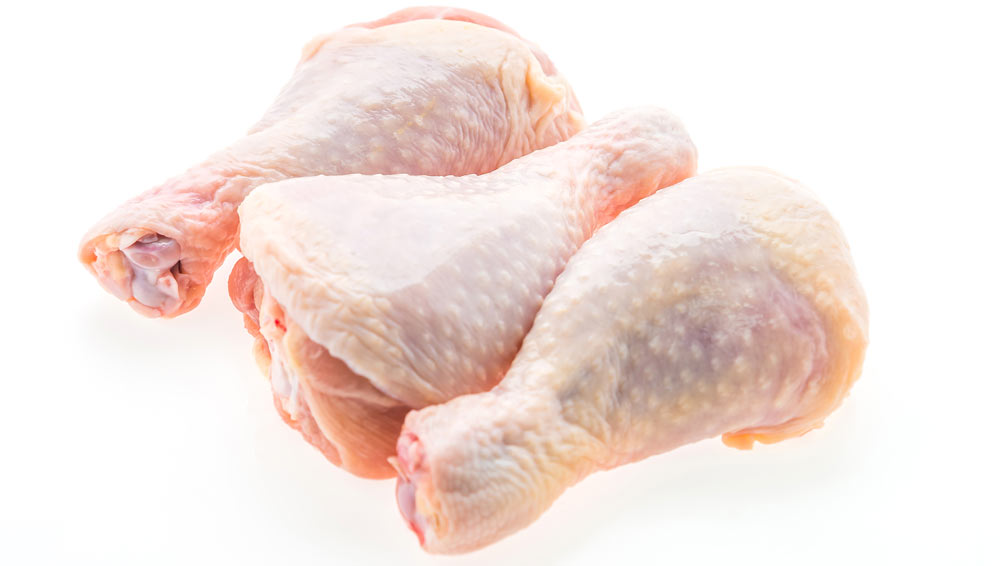
Why Dogs Can (Usually) Eat Raw Meats Safely
There are a few reasons why dogs are less likely to suffer from health problems when eating raw chicken. Dogs evolved as carnivores without the ability to cook meat, so their digestive systems are adapted to cope with bacteria such as E.Coli and salmonella. These adaptations include:
- The acid in a dog’s stomach is usually “stronger” than in a human. This helps to kill bacteria that might be present in raw chicken.
- Dogs have a much shorter gastrointestinal tract compared to humans. This allows food to pass through the body quicker, providing less time for dangerous bacteria to make themselves at home.
It’s still possible for a dog to contract salmonella or other harmful bacteria (see the section below). But it’s less likely than if a human was to eat the same meat.
In fact, dogs raised for their athletic performance (such as racing greyhounds) have traditionally been fed a raw food diet by some trainers. Trainers call this a BARF diet (Biologically Appropriate Raw Food), as it aims to mimic the diet of a dog in the wild.
Raw food diets for pet dogs are also becoming popular. While there is fierce debate about the health of a raw food diet – many vets think it’s unbalanced and potentially dangerous in the long-term – there’s little risk of a healthy dog occasionally eating raw chicken. The more raw chicken your dog eats, however, the greater the chance of an infection. For this reason, it’s probably best to avoid feeding raw chicken on a regular basis.
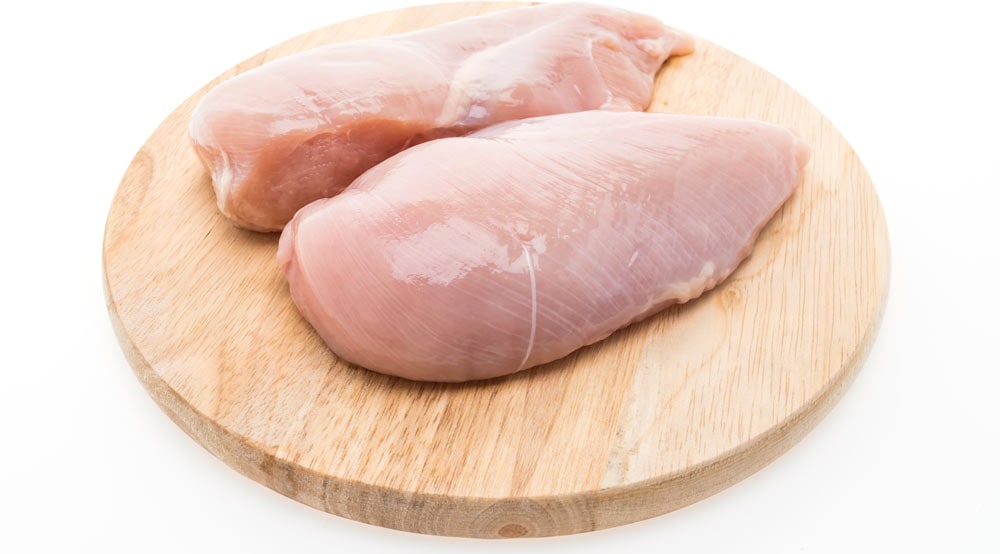
What About Salmonella?
While eating raw chicken doesn’t seem to be as dangerous for dogs as humans, it still has the potential to cause health problems in dogs – and salmonella is one of the most common concerns.
Salmonella is a group of bacteria found in foods such as eggs, chicken, cheese and nuts. In humans, salmonella can lead to a variety of unpleasant symptoms that can last up to a week – so it’s no wonder most people try to avoid it at all costs.
Dogs can get a salmonella infection – and it’s often present in raw chicken. It is, however, more common in dogs that have weak immune systems (including puppies and older dogs) or those already on antibiotics (as this can reduce the amount of protective bacteria in the dog’s digestive system).
“A big concern with salmonellosis in dogs is that they can transmit it to owners who can become very poorly,” says vet Dr Linda Simon. “I always warn raw-feeding owners of this risk and discuss how they need to be extra cautious when handling their dog and its poop, especially washing hands thoroughly after. These owners should also not let their dogs lick them or their children on the face.”
If you suspect your dog has salmonella, treatment depends on how bad it is. While mild cases can usually be treated without a hospital visit, always see your vet when your pet is unwell. It’s vital to make sure your dog stays hydrated while he’s recovering. Your vet may also prescribe antibiotics.
Severe cases may require hospitalisation of the dog. This is so the dog can be properly hydrated via IV fluid therapy. Most dogs recover well even with severe salmonella though.
Can Dogs Eat Raw Chicken Regularly?
While eating the occasional piece of raw chicken isn’t likely to cause a problem, many vets and organisations are against raw food diets. Here’s a quote from the AVMA:
The AVMA discourages the feeding to cats and dogs of any animal-source protein that has not first been subjected to a process to eliminate pathogens because of the risk of illness to cats and dogs as well as humans.
They also say:
Cats and dogs may develop foodborne illness after being fed animal-source protein contaminated with these organisms if adequate steps are not taken to eliminate pathogens; secondary transmission of these pathogens to humans (eg, pet owners) has also been reported.
There’s more information about the AVMA’s policy in the link above. But why are they so against it when dogs are much less likely to contract a bacterial infection from food?
Firstly, there’s evidence that raw food diets aren’t nutritionally complete. This is often due to owners not thoroughly researching the diet and what needs to be included.
“Those who wish to feed home-made diets must consult with a nutritionist first, to prevent deficiencies in the dog’s diet,” says Dr Linda Simon. “The most common deficiencies include calcium, essential fatty acids and iodine.”
Also, as we’ve found out in this article, dogs can still get food poisoning. The more you feed your dog raw meat, the more likely he is to develop a food-borne illness.
Another potential problem is the increased risk of owners getting a secondary infection. This could be via the dog’s faeces or just poor hygiene when preparing the food.
As a side note, most vets advise against feeding a dog bones, as they can cause tooth fractures, constipation, gut obstructions, and lacerations. However, cooked bones are potentially more dangerous for dogs to eat than raw ones. Cooked bones can split into fragments and cause serious injuries to your dog’s digestive system. If you suspect your dog has eaten cooked chicken bone, contact your vet immediately.
Can All Dogs Safely Eat Raw Chicken?
Dogs that have digestive problems or pancreatitis may be more susceptible to health problems caused by bacteria in raw chicken. The same is likely to be true for puppies and senior canines.
Also, as we mentioned earlier, dogs that aren’t used to eating raw meat may suffer from gastrointestinal issues after eating raw meat. This is normal and only indicates food poisoning if the dog has repeated diarrhoea or vomiting.
Summary
The simple answer to “what should I do if my dog ate raw chicken?” is usually “nothing, but closely monitor your pet for signs of illness.” Dogs are better adapted to eating raw meat than humans, and most won’t suffer serious health problems from the occasional piece of uncooked chicken.
That doesn’t mean a raw food diet is the right choice for your pet though. In fact, this type of diet may be nutritionally unbalanced and potentially dangerous. It also doesn’t mean your dog won’t get a food-borne illness – it’s just not as likely as when humans eat raw meat.
Related Article: Can Dogs Eat Chicken Nuggets?
Sources:
- https://www.foodsafety.gov/poisoning/causes/bacteriaviruses/salmonella/
- http://scienceline.ucsb.edu/getkey.php?key=1288
- http://www.petmd.com/dog/nutrition/5-mistakes-people-make-when-feeding-pets-raw-food-diet?page=5
- https://www.vetary.com/dog/condition/salmonella-infection
- http://www.greyhounds4u.co.uk/diet-and-nutrition-for-greyhounds.html
- https://www.avma.org/KB/Policies/Pages/Raw-or-Undercooked-Animal-Source-Protein-in-Cat-and-Dog-Diets.aspx
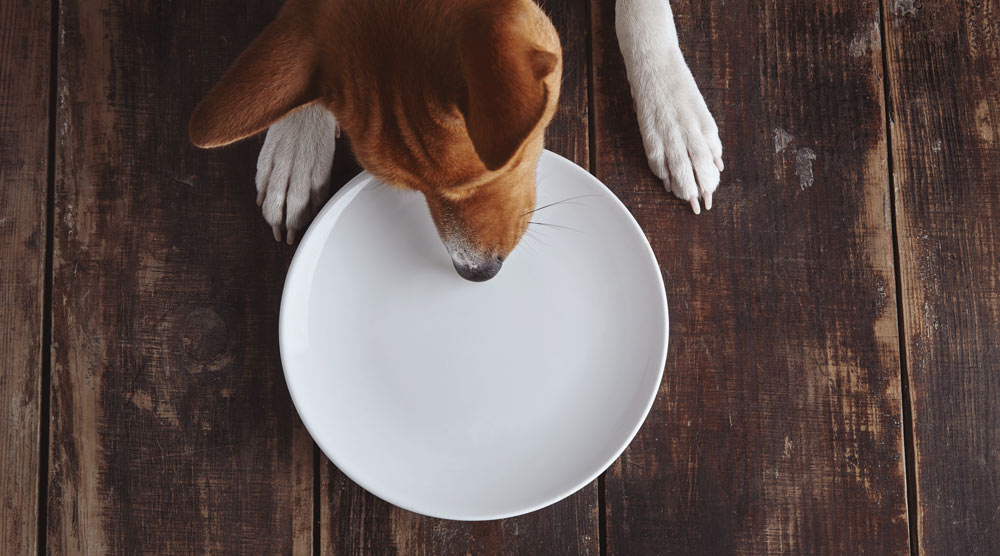

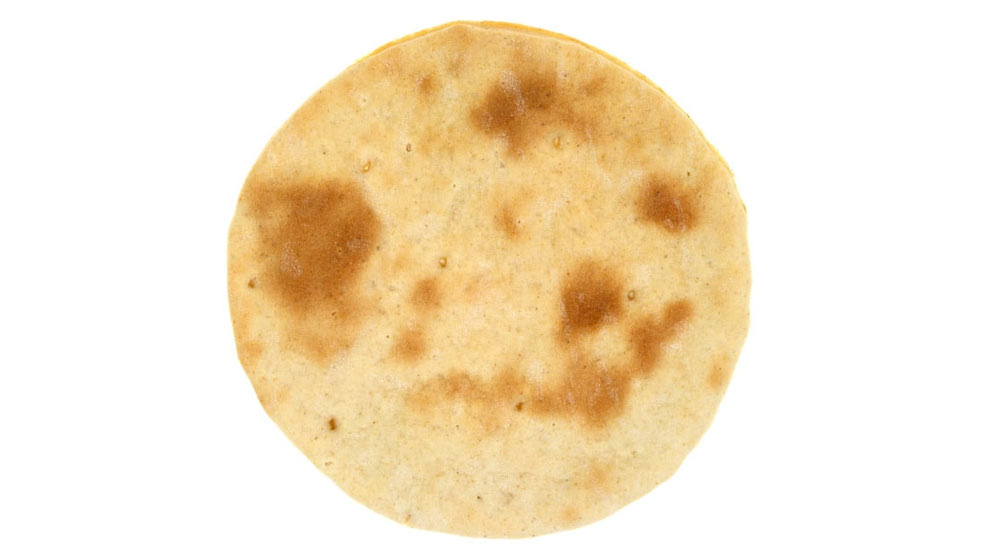
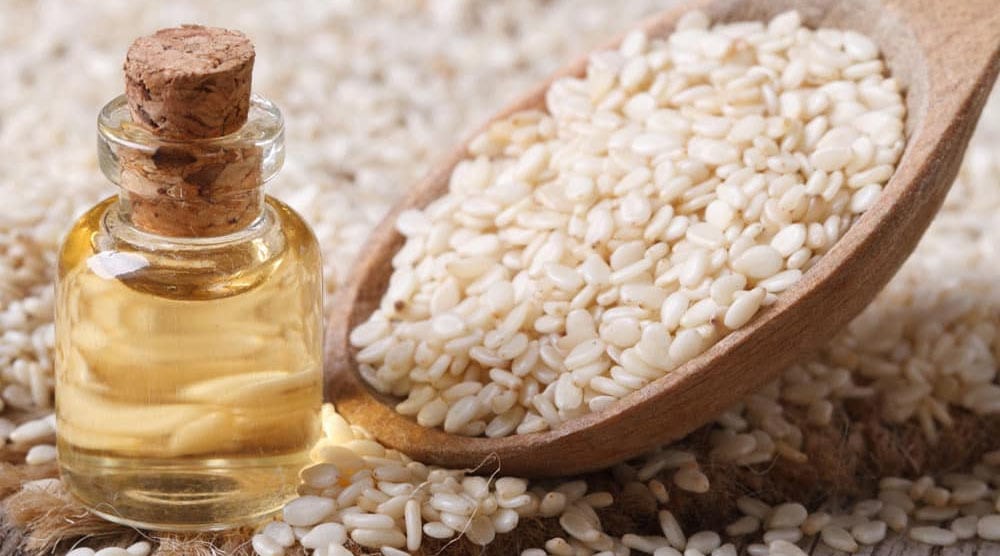
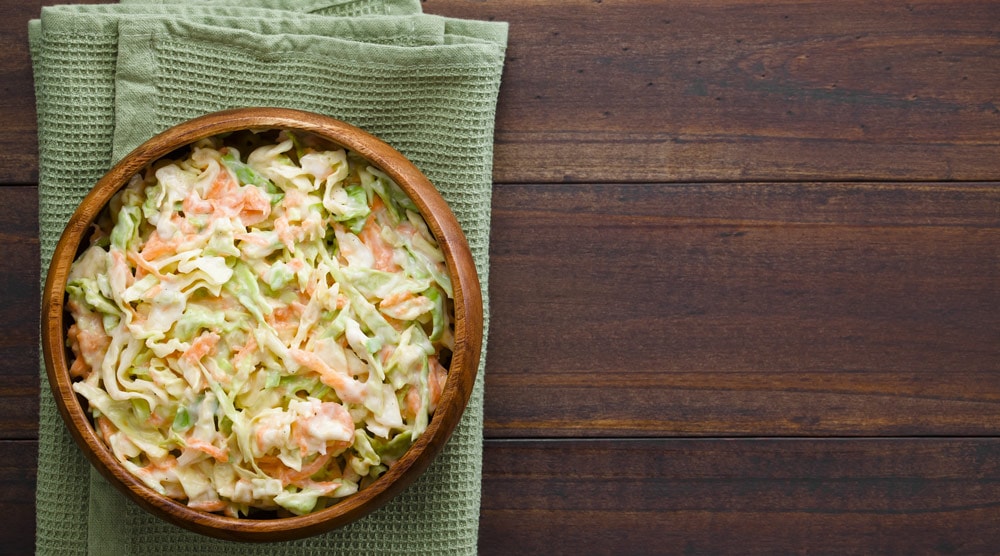
Thank you for the education on this. I was very curious after my niece fed her dog a raw diet.